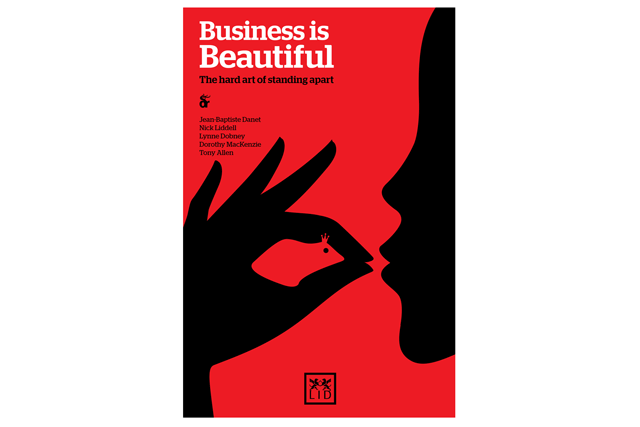
When speaking at a Marketing Society event recently I was asked a few questions about brand commitment and the need to flex brand guidelines to drive innovation. All became clear when, a few days later, I was sent a copy of this book by the person who had been asking those questions. The company I work for, Hiscox, is mentioned in the book.
I was not, however, inspired to read it for this reason; rather, I was intrigued by the title and the idea that businesses can be distinctive and commercially successful if they pursue principles, rather than just money. This was an idea that really appealed to me.
The book reviews the five hallmarks that enable "beautiful" businesses to stand apart. Throughout each chapter the reader is introduced to companies and leaders who demonstrate how these hallmarks translate into direction, leadership, and profitability. Much of it is put down to individuals who lead and manage their organisations through passion and intelligence.
A strong theme runs through the book: that you should start with people. People should be treated, both inside and outside the business, with respect and commitment.
A strong theme runs through the book: that you should start with people. People should be treated, both inside and outside the business, with respect and commitment. Attention is also given to businesses that think in a holistic, long-term way. Many of those featured are not typical FMCG names, but an eclectic mix of companies spanning many countries and industries.
The first hallmark explored is "Integrity", and there are interesting examples of businesses that made sacrifices to remain true to their central purpose and values. The book moves on to explore "Curiosity" and challenges the convention that "knowledge is power". With so much data available, there is a risk of "analysis paralysis", and businesses need to make decisions about the future, not the past, so foresight and imagination are required.
Beautiful businesses, the book claims, need a culture that encourages challenge both internally and externally. A chapter on "Elegance" focuses on the need to take a creative approach to problem-solving, rather than the application of a workmanlike logic, especially in relation to the issues of culture, vision, innovation and leadership. Examples are given of companies that find efficient, intelligent ways to do things and understand the importance of designing and communicating with empathy.
The book also explores the value of storytelling, and the success that comes with being able to create powerful stories that connect the past with the future. Importance is also placed on the experience brands can deliver, through attention to detail, making every transaction a delight, and having a signature style.
The authors go on to suggest that the word "consumer" should be dropped altogether in favour of the term "people", creating a more intimate relationship between business and society.
This is a very idealistic book: not revolutionary, but very positive and well-researched. Are there other ways to be successful? Certainly. Nevertheless, it is a timely message. Almost daily we are confronted with cases of businesses that have forgotten the social contract implicit in their mission, or indeed stated explicitly by their founders. By contrast, businesses like John Lewis - based on the co-operative model - demonstrate how it is possible to be commercially successful and motivate a big workforce.
Does the world need more "beautiful" businesses? Well, why not?
Business is Beautiful: the Hard Art of Standing Apart by Jean-Baptiste Danet, Nick Liddell, Lynne Dobney, Dorothy McKenzie, Tony Allen. Published by LID Publishing.
CRIB SHEET
If you only have time for this... six key points from the book
1. People and personality. Businesses rely for their success on people and personality as much as they do on protocol and process.
2. Know what you want. A clearly defined purpose is central to a business that intends to be successful in the long term.
3. The power of imagination. You can't create something unless you can first imagine it. This is one of the reasons why some people compare entrepreneurs to artists.
4. Standing out from the crowd. This takes self-confidence and conviction, but it allows us to exercise our own judgement.
5. The devil is in the detail. It is imperative that you get the details right; it can be the difference between being desired and tolerated.
6. Give and take. Businesses will sometimes need to make sacrifices to remain true to their central purpose and values.


.jpg)


.jpg)